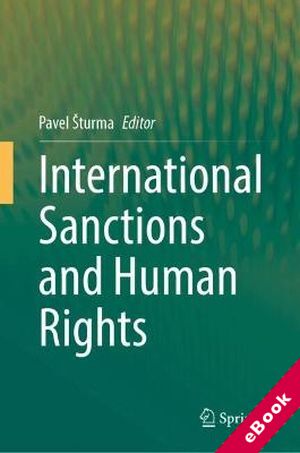
The device(s) you use to access the eBook content must be authorized with an Adobe ID before you download the product otherwise it will fail to register correctly.
For further information see https://www.wildy.com/ebook-formats
Once the order is confirmed an automated e-mail will be sent to you to allow you to download the eBook.
All eBooks are supplied firm sale and cannot be returned. If you believe there is a fault with your eBook then contact us on ebooks@wildy.com and we will help in resolving the issue. This does not affect your statutory rights.
The word "sanctions" is currently used more than ever before not only in the media, political statements, but also in legal discourse. Apart from this very widely cited term, European Union documents tend to refer also to "restrictive measures" while international law parlance embraces the concept of "countermeasures" (being the modern equivalent of peaceful reprisals from the point of view of general customary international law), i.e. individual coercive measures, or "security measures", which is a term used in some treaties.
Sanctions or measures, whatever they are called, are a necessary and legitimate response to Russian aggression in Ukraine in the current situation. However, this does not rule out certain legal problems. The nature of these measures must be assessed in the light of international law. From this point of view, finding answers to the following questions is essential.